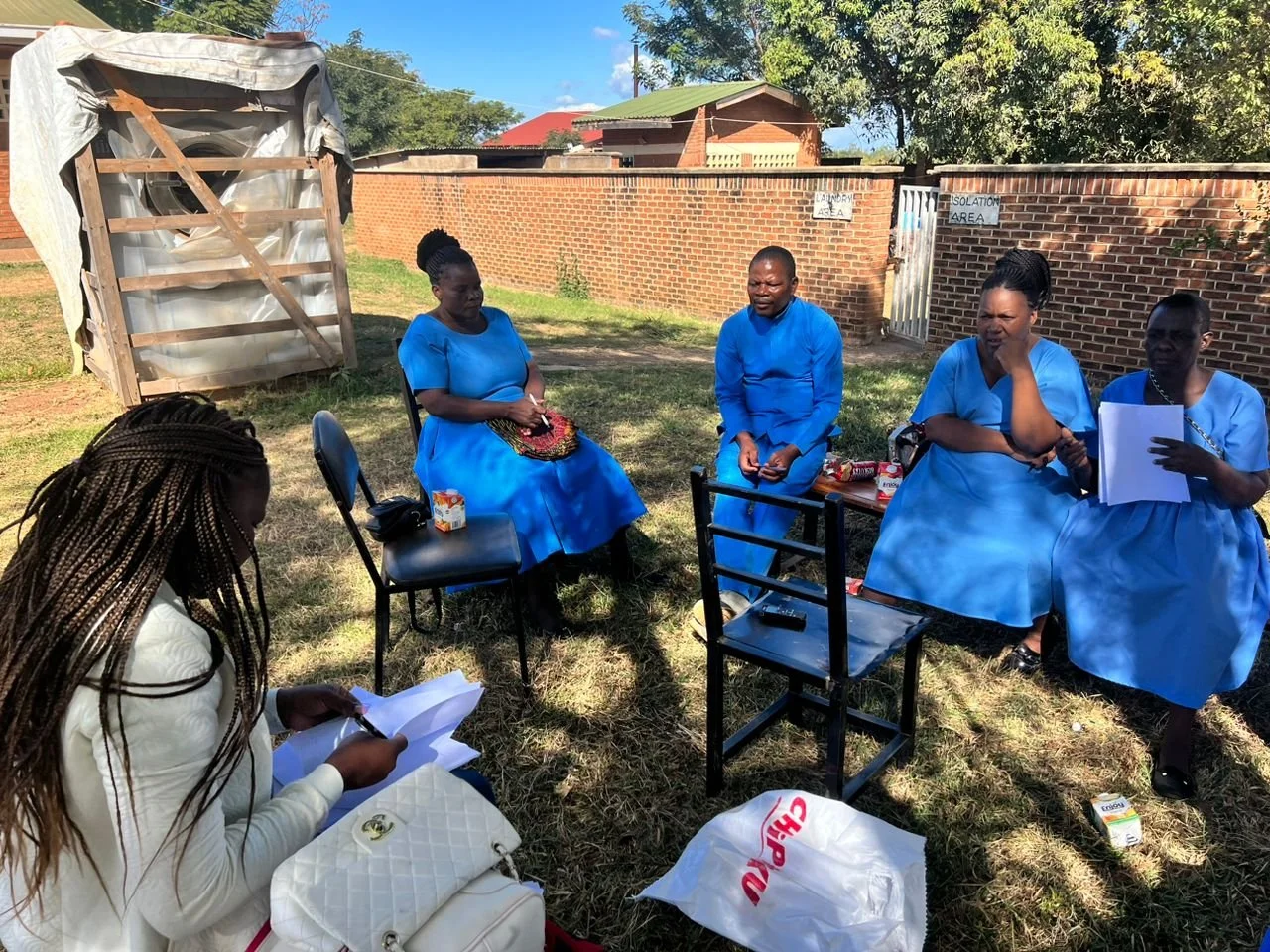Impact of Digital Payments on Health Workers & their Households
A research assistant (holding the tablet) during the data collection exercise of this project interviewing a community health worker’s household member (holding the baby) in one of the study districts in Malawi.
Funder: Makerere University School of Public Health Implementing Partner: Kamuzu University of Health Sciences
Project Period: 01/2023 - 09/2023 Country: Malawi
Study Title: A mixed-methods cross-sectional study exploring the perceptions of community health workers and their households on how digital financial services influence financial inclusion, financial behavior, personal safety, and security of payments. A case study of Community health workers in Malawi
Digital financial services (DFS) can be looked at as the delivery of financial services through digital devices such as laptops, smartphones, tablets, etc. Evidence suggests that DFS comes with many advantages, including financial inclusion of the hard-to-reach and underserved populations, improved financial behaviors (spending, savings, and investment patterns), financial safety, security of financial transactions, reduced fraud, etc. Health authorities like the Malawi Ministry of Health and key organizations in the health sector such as WHO, and USAID among others, are promoting the use of digital payments to leverage these benefits. This has been seen in the more recent mass vaccination campaign efforts. For example, in Malawi, the WHO, UNICEF, and Bill and Melinda Gates Foundation in collaboration with the Ministry of Health, introduced mobile cash transfers for payment of community health workers and volunteers during the implementation of Polio, and COVID-19 mass vaccination campaigns and in the most recent cholera vaccination campaign. While digital payments are characterized by these advantages to the health sector and healthcare workers, less is known about the perceptions of community health workers and their households on the influence of digital payments on financial inclusion, safety, and financial behavior. For instance, the extent to which digital financial services have increased the involvement of field health workers in rural areas in the financial sector and how this has affected the distribution of roles and risks—both new and routine—in different ways from traditional methods of providing retail financial services, are not well documented in Malawi
Broad Objectives:
To determine the perceived effect of digital payment services on financial inclusion, financial behavior, and the safety and security of payments among community health workers and their household members in Malawi.
Specific Objectives
To assess health workers´ perception of the influence of digital payment systems on financial inclusion.
To assess community health workers´ perception of the influence of digital payment systems on financial behavior.
To explore community health workers´ perception of personal safety and security of their money when using digital payment systems.
To elucidate changes in households’ gender dynamics because of the transition from analog to digital payments for community health workers
To assess the influence of rural-urban location on CHW perceptions of differences between digital financial services and traditional payment methods (such as cash).
To explore how digital payment systems empower health workers in making and acting upon strategic decisions relating to their time use and allocation.
Key Activities
This was a research project that involved data collection, data analysis, and presentation of study findings in the form of a study report and a manuscript.
Results/Impact (Achieved /anticipated)
Recommendation of streamlining the implementation of Digital Health Payment systems
Policy briefs to key stakeholders regarding gaps that need policy guidelines.
Resources
https://shorturl.at/Avqd5
https://dhpir.mak.ac.ug/index.php/stories/can-frontline-community-health-workers-hard-reach-areas-benefit-mobile-digital-payments













